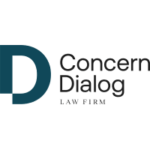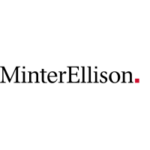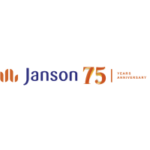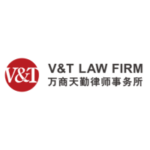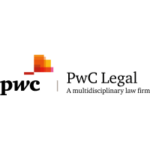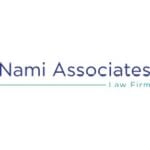-
What are the main methods of resolving disputes in your jurisdiction?
In Japan, negotiation, mediation, arbitration and litigation are the primary dispute resolution methods.
The most commonly used arbitration institutions are the International Chamber of Commerce (ICC), the Singapore International Arbitration Centre (SIAC) and the Japan Commercial Arbitration Association (JCAA).
-
What are the main procedural rules governing litigation in your jurisdiction?
The procedural rules are mainly governed by the Code of Civil Procedure (“CCP”) and the Rules of Civil Procedure (“RCP”).
In addition, civil provisional remedies are governed by the Civil Provisional Remedies Act and the Rules of Civil Provisional Remedies. Civil execution is governed by the Civil Execution Act and the Rules of Civil Execution.
-
What is the structure and organisation of local courts dealing with claims in your jurisdiction? What is the final court of appeal?
Below the Supreme Court, eight high courts (with six branch courts), 50 district courts (with 203 branch courts), 50 family courts (with 203 branch courts and 77 satellite courts) and 438 summary courts exist.
A summary court deals with litigation cases where the amount claimed is less than 1.4 million yen, small claims litigation (a special procedure available for cases claiming the payment of money of up to 600,000 yen) and civil mediation cases.
In principle, the first instance is the district court, appeals can be made to the high court and the Supreme Court, which is the final court of appeal.
Note that if the first instance is the summary court, appeals can be made to the district court and the high court, which is the final court of appeal.
-
How long does it typically take from commencing proceedings to get to trial in your jurisdiction?
In Japan, after filing a complaint, several written briefs are exchanged and the court determines the points at issue as well as compiles the relevant evidence of each case, through the preparatory proceedings for oral arguments. Then, if the court considers it necessary, a witness examination is conducted. After finishing the witness examination, the court concludes the oral arguments and renders a judgment.
Based on the statistics published by the Supreme Court in 2022, the average period is as follows:
- From the filing of a complaint to the commencement of a witness examination: 19.4 months
- From the commencement of a witness examination to the conclusion of oral arguments: 1.9 months, and
- From the conclusion of oral arguments to the rendering of a judgment: 2.2 months.
In total, the average period from the filing of a civil lawsuit to the rendering of a judgment is 23.5 months, in the case where a witness examination is conducted.
However, in cross-border cases, it typically takes several months from the filing of a civil lawsuit to the first oral argument, since a complaint must be served through the Hague Convention. In addition, in cross-border disputes, the evidence submitted to the court is usually written in a language other than Japanese. Since all evidence written in such language must be translated into Japanese before the submission thereof, it takes a relatively longer period to go through the process compared to domestic disputes.
Nevertheless, by May 2026, a system will be implemented for certain cases, where, as a general rule, if both parties have appointed counsels, and if both parties request or consent, the procedure can be concluded within six months from the commencement of the proceedings, with a judgment issued within one month thereafter (Articles 381-2 to 381-8 of the amended CCP).
-
Are hearings held in public and are documents filed at court available to the public in your jurisdiction? Are there any exceptions?
In Japan, the hearing of an oral argument and rendering of a judgment must be held in open court (Article 82(1) of the Constitution of Japan). These procedures cannot be accessed by the internet and must be observed in court. In addition, making audio and video recordings in court is prohibited (Article 77 of the RCP). On the other hand, other preparatory proceedings (e.g. dates of the preparatory proceedings, settlement, progress conference, etc.) are held in private.
In principle, documents filed with the court are accessible by the public (Article 91(1) of the CCP). On the other hand, persons entitled to request a copy of the records are limited to the parties of the case and third parties who have made a prima facie showing of interest (Article 91(3) of the CCP). Currently, such documents cannot be accessed online and may only be accessed by going to the court. However, by May 2026, the following systems are scheduled to be implemented: (i) the parties of a case will be able to access and copy records from their office or other computer at any time; (ii) third parties who have made a prima facie showing of interest may request online to access and copy records, and after receiving permission from the court clerk, they can access and copy the relevant records from their personal computer; (iii) uninterested third parties may request online to access records, and after receiving permission from the court clerk, they can visit the nearest court to access the records from a court computer (Article 91-2 of the amended CCP, Article 33-3 of the amended RCP).
Furthermore, a party may file a motion for restriction of inspection, etc. (Article 92(1) of the CCP), if the record contains (i) serious secrets about the party’s private life that could greatly impact their social life if inspected by a third party or (ii) trade secrets. If the court grants the petition, no one other than the parties may inspect or copy that part of the record. In addition, if such a motion is filed, third parties may not inspect or copy that part of the record until the court decision on the motion becomes final (Article 92(2) of the CCP).
-
What, if any, are the relevant limitation periods in your jurisdiction?
In Japan, in principle, there are no limitation periods under the CCP, such as the time limit for filing a suit. However, as a limitation under substantive law, there are extinctive prescriptions of claims, so claims for which the prescription period has expired cannot, generally, be claimed in litigation.
In principle, a claim is extinguished when (i) five years have elapsed since the obligee became aware that the right could be exercised or (ii) 10 years have elapsed since the right could be exercised (Article 166(1) of the Civil Code).
However, the claim for compensation for loss or damage caused by tort is extinguished when (i) three years have elapsed since the victim or their legal representative became aware of the damage and the perpetrator or (ii) 20 years have elapsed since the tortious act (Article 724 of the Civil Code).
Exceptionally, the claim for compensation for loss or damage arising from death or injury to a person, whether or not caused by a tort, is extinguished when (i) five years have elapsed since the obligee became aware that the right could be exercised or since the victim or their legal representative became aware of the damage and the perpetrator, or (ii) 20 years have elapsed since the right could be exercised or since the tortious act (Articles 167 and 724-2 of the Civil Code).
-
What, if any, are the pre-action conduct requirements in your jurisdiction and what, if any, are the consequences of non-compliance?
For cases involving requests for rent increase or decrease in land or building leases (Articles 11 and 32 of the Act on Land and Building Leases), it is necessary to apply for civil mediation in court before filing a civil lawsuit (Article 24-2(1) of the Civil Mediation Act). If a lawsuit is filed without a petition for civil mediation, the case is submitted to civil mediation by the receiving court (Article 24-2(2) of the same act).
In addition, regarding consumer disputes, in order to protect the interests of all consumers, qualified consumer organizations are allowed to independently file their own lawsuits seeking an injunction or any other corrective measures (Article 12(1) to (4) of the Consumer Contract Act). Before filing a lawsuit seeking an injunction, the qualified consumer organisation must first send a written notice of injunction to the business operator which will become the defendant of the lawsuit. The qualified consumer organisation may file a lawsuit after one week has passed since the entrepreneur received the notice (Article 41 of the same act).
-
How are proceedings commenced in your jurisdiction? Is service necessary and, if so, is this done by the court (or its agent) or by the parties?
In Japan, a lawsuit is commenced by the filing of a complaint with the court (Article 134(1) of the CCP). Revenue stamps must be affixed according to the amount of the suit (Articles 4 and 8 of the Act on the Costs of Civil Proceedings). For example, if the amount of the suit is 100 million yen, the revenue stamps to be affixed are for 320,000 yen. In addition, in order to serve the defendant, a duplicate copy of the complaint must be submitted in proportion to the number of defendants to the court set to hear the complaint (Article 58(1) of the RCP). The costs of service must also be prepaid (usually in postal tickets for an estimated amount) (Articles 11 through 13 of the Act on the Costs of Civil Proceedings). Furthermore, in practice, a copy of the material documentary evidence is required to be attached with the complaint (Article 55 of the RCP). However, by May 2026, it will become possible to file a lawsuit to the court online (Article 132-10 of the amended CCP), and as a general rule, payment of fees will also be made electronically (Article 8 of the amended Act on the Costs of Civil Proceedings, Article 4-2 of the amended Regulations on the Costs of Civil Proceedings).
The presiding judge then examines the complaint (Article 137(1) of the CCP) and, if the complaint is deemed to be in order, a duplicate copy of the complaint is served on the defendant by the court clerk (Articles 138(1) and 98(2) of the CCP and Article 58(1) of the RCP) through special postal service. Similarly, with regard to service of documents from the court, by May 2026, it will become possible to record the documents to be served on the court’s server, make them available for the recipient to view and download, and notify the recipient via their registered contact information (such as email address) (Article 109-2 of the amended CCP).
If the defendant is located abroad, service is conducted in accordance with the Hague Convention on the Service Abroad of Judicial and Extrajudicial Documents in Civil or Commercial matters or Hague Convention on Civil Procedure, both of which Japan has acceded to. If the country in which the defendant is located has not acceded to either of the said conventions, service can be made through bilateral consular convention (such as the US-Japan consular convention and the UK-Japan consular convention), bilateral assistance arrangements, or individual consents. Personal service (i.e. service by the parties themselves) is not permitted.
-
How does the court determine whether it has jurisdiction over a claim in your jurisdiction?
International jurisdiction is governed by Articles 3-2 to 3-12 of the CCP. For example, Japanese courts have jurisdiction over claims in the following cases:
(1) Agreement on Jurisdiction
If the parties agree in writing, such jurisdiction is recognized by the Japanese courts (Article 3-7, (1) and (2) of the CCP).
However, for the protection of consumers and workers, special rules regarding future consumer contract disputes or individual labor disputes are provided in the CCP, in which the validity of an agreement on jurisdiction is recognized only when certain conditions are satisfied (Article 3-7, (5) and (6) of the CCP).
(2) General jurisdiction
Regarding actions against natural persons, Japanese courts have jurisdiction in the following cases (Article 3-2(1) of the CCP):
- if the defendant is domiciled in Japan
- if the defendant has no domicile or if the domicile is unknown, but the defendant has a residence in Japan
- if the defendant has no residence or if the residence is unknown, but the defendant had a domicile in Japan before the action was brought (unless the last known country of domicile is not Japan).
Regarding actions against juridical persons or other associations or foundations, Japanese courts have jurisdiction in the following cases (Article 3-2(3) of the CCP):
- if their principal office or business is located in Japan
- if they have no office or business, or if their office or business location is unknown, but their representative or other person primarily in charge of their business is domiciled in Japan.
(3) Special jurisdiction
In other cases, for each type of action, jurisdiction may be recognised in Japanese courts if (i) the place of performance of contractual obligations, (ii) the location of property, (iii) the location of offices, etc., (iv) the location of business activities, or (v) the place of tortious acts, etc., are in Japan (Article 3-3 of the CCP).
(4) Jurisdiction Based on Appearance
Jurisdiction is recognized if the defendant has presented arguments on the merits or participated in preparatory proceedings without contesting the jurisdiction of the Japanese court (Article 3-8 of the CCP).
(5) Jurisdiction over Actions Involving Consumer Contracts and Labor Relations
Special provisions under consumer contract disputes in which the consumer may become the plaintiff and individual labor disputes in which the worker may become the plaintiff protect consumers and workers. Even if Japanese courts do not recognize jurisdiction in other types of cases, jurisdiction is acknowledged if, for instance, the consumer resides in Japan or the worker’s place of employment is in Japan (Article 3-4 of the CCP).
(6) Dismissal without Prejudice Due to Special Circumstances
If Japanese courts have jurisdiction over a case, the action may still be dismissed if there are special circumstances that could unfairly affect the equitable relationship between the parties or hinder a fair and prompt trial in Japan.
However, when there is an agreement that an action may be filed only in Japanese courts, the action cannot be dismissed due to these special circumstances (Article 3-9 of the CCP).
-
How does the court determine which law governs the claims in your jurisdiction?
The Act on General Rules for Application of Laws, which are rules relating to the choice of law in Japan, is applicable to the determination of which law governs the claims.
For example, if parties choose a specific jurisdiction at the time of concluding a contract (Article 7 of the same act), the laws of that jurisdiction govern the establishment and validity of the contract. If the parties do not specify a jurisdiction in the contract, then the laws of the jurisdiction most closely associated with the legal act at the time govern the establishment and validity of the contract (Article 8(1) of the same act). Property rights and other rights concerning movable or immovable property are governed by the law of the place where the subject matter is located (Article 13(1) of the same act). With respect to claims arising from unjust enrichment, such claims are governed by the law of the place where the underlying facts of the claim occurred (Article 14 of the same act). The establishment and validity of claims arising from a tort are governed by the law of the place where the result of the offending act occurred. However, if the occurrence of the result in that place could not normally be foreseen, it is governed by the law of the place where the offending act took place (Article 17 of the same act).
-
In what circumstances, if any, can claims be disposed of without a full trial in your jurisdiction?
Claims may be disposed of by litigation settlement, withdrawal of an action and waiver or acknowledgment of a claim.
(1) In-court Settlement
In-court settlement means that on a certain date (such as during an oral argument, preparatory proceedings or a settlement date), both parties to a pending lawsuit agree to concede each other’s claims and bring the lawsuit to an end. The settlement terms are recorded in a court document. Once recorded, the in-court settlement has the same legal effect as a final and binding judgment (Article 267 of the CCP).
(2) Withdrawal of an Action
Withdrawal of an action is a unilateral action by the plaintiff and may be made at any time until the judgment becomes final (Article 261(1) of the CCP). However, if the defendant has submitted a brief on the merits, made a statement in the preparatory proceedings, or presented oral arguments, the withdrawal of an action requires the defendant’s consent (Article 261(2) of the CCP). It would be deemed retrospectively that the withdrawn claim(s) were not pending before the court (Article 262(1) of the CCP).
(3) Waiver/Acknowledgment of a Claim
Waiver of a claim means a statement in a lawsuit where the plaintiff denies their own claim and acknowledges that there is no basis for their claim. On the other hand, acknowledgment of a claim means a statement in a lawsuit where the defendant admits that there is a basis for the claim against them (Article 266(1) of the CCP). When a waiver or acknowledgment of a claim is entered in the court record, the statement carries the same legal effect as a final and binding judgment (Article 267 of the CCP).
-
What, if any, are the main types of interim remedies available in your jurisdiction?
Under the Civil Provisional Remedies Act, there are three types of interim remedies available in Japan: (i) provisional seizures (Article 20), (ii) provisional dispositions concerning a disputed property (Article 23 (1)) and (iii) provisional dispositions to establish a provisional status (Article 23 (2)). (i) A provisional seizure is a procedure to preserve the payment of a monetary claim by selecting, from among the respondent’s liable properties, an appropriate property that corresponds to the amount of the claim and maintaining the current status of the property to secure a future compulsory execution. (ii) A provisional disposition concerning a disputed property is a procedure to take the provisional measures necessary to maintain the status quo of a specific subject matter when the claimant has the right to claim benefits from the respondent in respect of the subject matter and it may become impossible or extremely difficult to enforce the right in the future due to a change in the current physical or legal status of the subject matter (e.g. a provisional disposition prohibiting the respondent from transferring its possession of the subject matter when the claimant has the right to bring a claim for the delivery of the subject matter from the respondent). (iii) A provisional disposition to establish a provisional status is a procedure to order that the necessary measures be taken on a provisional basis to prevent the claimant from suffering significant damage or being exposed to imminent danger in relation to a disputed right (e.g. a provisional disposition to prohibit an unauthorised use of trade secrets or a provisional disposition to prohibit a publication by the respondent if the publication is likely to result in a serious violation of the claimant’s right to honour or privacy).
-
After a claim has been commenced, what written documents must (or can) the parties submit in your jurisdiction? What is the usual timetable?
The court will serve the defendant with a duplicate copy of the complaint and a summons for a specific court date. With regard to service of documents from the court, by May 2026, it will become possible to record the documents to be served on the court’s server, make them available for the recipient to view and download, and notify the recipient via their registered contact information (such as email address) (Article 109-2 of the amended CCP).
The defendant must file an answer by the deadline stated in the summons. There is no uniform rule as to whether an answer must be filed within a certain number of days after service of the complaint; however, a date that is no later than one week before the first court hearing date is commonly designated by the court. The defendant may also file a counterclaim relating to the plaintiff’s claim or relating to the means chosen by the defendant to defend against that claim (Article 146(1) of the CCP). A counterclaim may be filed while the main action is pending before the fact-finding court and until the conclusion of the oral arguments in the main action. Thereafter, although it depends on the case, a court hearing is scheduled about once a month (sometimes once every two or three months in complex or large-scale cases), and both parties submit briefs in accordance with the progress of the litigation. There is no limit on the number of briefs that may be submitted or the number of pages, and the court specifies the deadlines for submissions on a case-by-case basis. By May 2026, it will become possible to file an answer and briefs to the court online (Article 132-10 of the amended CCP). -
What, if any, are the rules for disclosure of documents in your jurisdiction? Are there any exceptions (e.g. on grounds of privilege, confidentiality or public interest)?
In Japanese litigation, there are no extensive discovery procedures like in US litigation. However, a party may file a motion for an order to produce documents by specifying the documents to be produced, the holder of the documents, the facts to be proved by the documents and the grounds for the obligation to produce the documents (Article 221(1) of the CCP). Under Article 220 of the CCP, a party may not refuse to produce the documents (a) if the party refers to the documents in litigation and possess the documents, (b) if the requesting party has the right to receive or inspect the documents, (c) if the documents were created in the interest of the requesting party or with respect to the legal relationship between the requesting party and the holder of the documents or (d) if the documents do not fall under the grounds for exclusion in (i) to (v) below and if producing the documents is necessary. If a court finds that the motion satisfies the requirements under the law, the court will issue a decision ordering the holder of the documents to produce the documents (Article 223 (1) of the CCP).
Documents may be excluded from the obligation to produce if (i) the documents contain matters that are likely to lead to the criminal prosecution or conviction of the document holder or his or her close relatives or matters that are detrimental to their reputation, (ii) the documents relate to official secrets that may harm the public interest or the production thereof would seriously impede the performance of official duties, (iii) the documents contain facts known to doctors, lawyers, etc. in the course of their duties and should be kept confidential or contain matters relating to technical or professional secrets, (iv) the documents are exclusively for the use of the document holder (i.e. documents for internal use) or (v) the documents relate to litigation in criminal cases or records for juvenile protection cases or are seized in these cases (i.e. documents related to criminal cases, etc.) (Article 220, Item 4 of the CCP). Although there is no attorney-client privilege for communications between an attorney and a client, as is the case in US litigation, documents relating to such communications may fall under documents for internal use in (iv) above depending on the case.
-
How is witness evidence dealt with in your jurisdiction (and in particular, do witnesses give oral and/or written evidence and what, if any, are the rules on cross-examination)? Are depositions permitted?
As a general rule, witnesses should appear before the court on the court hearing date and give oral testimony in court. There are two ways to have a witness appear in court on the court hearing date: (i) the party who requested the examination of the witness is accompanied by the witness to the court on the court hearing date or (ii) the court subpoenas the witness by serving a subpoena on him/her. In practice, (i) is more common. In cases where it is difficult for the witness to appear (with the implementation of the amended CCP by May 2026, “in cases where the parties have no objection” (Article 204, Item 3 of the amended CCP) will also be added), the court may, at its discretion, examine the witness using a video conference system (Article 204 of the CCP) or have the witness submit a document in lieu of examination (i.e. documentary examination) (Article 205 of the CCP). In practice, a written statement describing what the witness will say in court is commonly submitted prior to the examination of the witness. The scope of the matters to be examined during cross-examination is defined as any matters that were raised during direct examination and are related thereto and any matters relating to the credibility of the testimony (Article 114(1)(ii) of the RCP), and if a question that is raised during cross-examination relates to matters that are not related to those mentioned above and is not considered appropriate, the presiding judge, upon a motion by a party or ex officio, may prohibit such question (Article 114(2) of the RCP).
In Japanese civil proceedings, parties are not permitted to conduct pre-trial recorded questioning of witnesses or potential witnesses (i.e. depositions). As an exception, upon a party’s petition, the court may conduct witness examinations in advance (i.e. before and during litigation) if the court finds under the circumstances that, unless the witness examinations are conducted in advance, it will be difficult to conduct them (Article 234 of the CCP).
-
Is expert evidence permitted in your jurisdiction? If so, how is it dealt with (and in particular, are experts appointed by the court or the parties, and what duties do they owe)?
Expert evidence is permitted. The court decides on the adoption or rejection of expert evidence when it is requested by the parties. The parties cannot designate an expert witness, but the court does (Article 213 of the CCP). The court decides on the matters to be appraised, taking into consideration the opinions of the parties, and the expert witness gives his/her opinion on the matters to be appraised. The expert witness must take an oath that he or she will give the appraisal in good faith and in accordance with his or her conscience. The method of stating the opinion of the expert witness can be made in writing or orally at the discretion of the presiding judge (Article 215(1) of the CCP), but basically it is done in writing (i.e. by submitting a written opinion).
In practice, rather than cases where an expert opinion is given by an expert witness designated by the court as described above, the parties often request experts chosen by each party to provide an opinion and submit an expert’s written opinion as evidence. Upon the party’s petition, a witness examination may be conducted if the court considers it necessary.
In addition, in some cases, court-designated experts are involved as technical advisors to provide supplementary expertise in litigation requiring specialised knowledge, such as intellectual property litigation, medical litigation and construction litigation (Article 92-2 of the CCP).
-
Can final and interim decisions be appealed in your jurisdiction? If so, to which court(s) and within what timescale?
A party who is dissatisfied with a final judgment rendered by a district court as the first instance may file an appeal to a high court (Article 281(1) of the CCP). The appeal must be filed by submitting the notice of appeal to the court of first instance within an unextendible period of two weeks from the date of service of the judgment or the record in lieu thereof (Article 285 and 286(1) of the CCP). A party who is dissatisfied with a final judgment rendered by the high court as the second instance may file a final appeal to the Supreme Court (Article 311(1) of the CCP). There are two ways to file a final appeal: (i) by the appellant submitting a petition for the final appeal to the court of prior instance (Article 314(1) of the CCP), or (ii) by the appellant submitting a petition for acceptance of the final appeal to the court of prior instance (Article 318(1) and (4) of the CCP). In the case of method (ii), a final appeal is deemed to have been filed when the Supreme Court, as the appellate court, makes a decision to accept the final appeal based on the petition for acceptance of the final appeal. The deadline for filing the petition for the final appeal in (i) and the petition for acceptance of the final appeal in (ii) is also within two weeks from the service of the written judgement of prior instance (Article 313 and 318(5) of the CCP). In the first instance and the court of appeal, both factual findings and legal judgments are made, while the court of final appeal judges only legal issues in principle, and therefore it is not possible to file a final appeal or a petition for acceptance of final appeal on the grounds of errors in factual findings. The grounds for final appeal are limited to constitutional violations and certain serious violations of procedural law (e.g. that a judge who cannot be involved in the judgment by law was involved in the judgment), while the grounds for petition for acceptance of final appeal are that the original judgment contains important matters concerning the interpretation of laws and regulations, such as violations of Supreme Court precedents. If the grounds for final appeal fall under either of these grounds, it is possible to file a petition for both of (i) final appeal and (ii) acceptance of the final appeal.
The hurdles to being allowed to final appeal are very high, for example, according to data from 2023, of the 1,896 civil cases appealed to the Supreme Court by the method (i), the decision to dismiss (a decision stating that the final appeal was obviously groundless (Article 317(2) of the CCP) was made in 1,862, which means that an overwhelming majority of the cases were dismissed. With regard to petitions for the acceptance of appeals in (ii), out of an overall number of 2,425 cases, decisions not to accept (a decision stating that the petition for acceptance of a final appeal was groundless) accounted for approximately 98% with 2,379 cases.
In the course of litigation, the court may issue an interlocutory judgment (Article 245 of the CCP) on matters in dispute between the parties. Independent appeals against this interlocutory judgment are not permitted and the interlocutory judgment is also contested in the context of an appeal against the final judgment.
Against the decision to dismiss the petition for interim remedies mentioned in question 12, the claimant may lodge an immediate appeal in writing within an unextendible period of two weeks from the date of receipt of the notification (Article 19(1) of the Civil Preservation Act). Conversely, where an order for a provisional remedy is issued, the respondent may file an objection to the provisional remedy (Article 26 of the Civil Provisional Remedies Act) or a petition for revocation of the provisional remedy (Articles 37 to 39 of the Civil Provisional Remedies Act) with the court that issued the order. An objection to a provisional remedy challenges the validity of the provisional order itself, while a motion to revoke a provisional order does not challenge the validity of the provisional order itself, but seeks revocation of the order due to a change in circumstances after its issuance. There is no time limit for filing an objection to a provisional remedy or a petition for revocation of a provisional order.
-
What are the rules governing enforcement of foreign judgments in your jurisdiction?
As long as all of the requirements from (i) to (iv) below are met, the judgment is naturally recognised in Japan without the need for special procedures (Article 118 of the CCP): (i) the court that has rendered the foreign judgment is recognised by law or treaty as having jurisdiction under international law and international jurisdiction over the case, (ii) the defendant has received the summons or order necessary to commence the action (excluding service of public notice or other similar service) or the defendant has not received the summons or order, but has responded to it, (iii) the content of the judgment and the proceedings are not contrary to public order or good morals in Japan; and (iv) there is a guarantee (mutual guarantee) that the foreign country concerned will recognise the Japanese judgment in the same way as Japan recognises the foreign judgment. Foreign judgments ordering punitive damages do not fulfil the requirement (iii) and are not recognised.
Even if a foreign judgment is recognised and its effect is acknowledged, it is necessary to file a lawsuit seeking an execution of the foreign judgment and obtain the judgment allowing the execution in order to execute the foreign judgment in Japan (Article 24 of the Civil Execution Act). A suit for an execution of a foreign judgment other than in respect of a domestic relations case shall always be brought in the district court as the court of first instance. In the lawsuit seeking an execution of a foreign judgment, the court reviews only the following issues: (i) whether the document for which an execution judgment is sought is a judgment of a foreign court, (ii) whether it has been proved that such judgment has become final and binding, and (iii) whether the foregoing requirements stipulated under Article 118 of the CCP have been satisfied, and may not examine the substance of the foreign judgment such as whether the factual findings of the foreign judgment in question are correct or whether the conclusions of the judgment are reasonable.
-
Can the costs of litigation (e.g. court costs, as well as the parties’ costs of instructing lawyers, experts and other professionals) be recovered from the other side in your jurisdiction?
Under the CCP, court costs are in principle borne by the losing party (Article 61 of the CCP).
The costs of litigation here include filing fees, costs required for the court to conduct litigation acts such as the examination of evidence and service (travel expenses and daily allowances for witnesses are included here), costs for the parties and their representatives to appear on the date, costs for the preparation and submission of documents by the parties, etc., but do not include attorney’s legal fees; provided, however, that in cases of claims for damages based on tort, in practice, attorney’s legal fees up to 10% of the amount of the claim, is awarded, as part of damages that have a reasonable causal relationship with the tortious act, within a range of around 10% of the amount of the claim. In cases of claims for damages based on the violation of contractual obligations, attorney’s legal fees are basically not recognised as damages.In the main text of a judgment, the court must decide which party bears court costs incurred in the relevant instance (Article 67(1) of the CCP). Even under the principle that the losing party bears the costs, the court may decide the burden of court costs at its discretion. In the judgment, only the party who bears the costs and the proportion thereof are determined, but the specific amount of the costs is not referred to in the judgment. The specific amount is determined by the court clerk of first instance upon the petition of a party, after the judgment ordering the bearing of court costs becomes enforceable (Article 71(1) through (3) of the CCP). In practice, however, it is not so common that the prevailing party requests the court clerk to determine the amount of court costs, because the court costs are small.
-
What, if any, are the collective redress (e.g. class action) mechanisms in your jurisdiction?
With regard to consumer lawsuits, there is a special law allowing a type of collective action. Specifically, there are the following two types of proceedings:
(i) Injunction request: A system whereby a qualified consumer organisation authorised by the Prime Minister may file a lawsuit seeking an injunction against an unjust act of a business operator in order to protect the interests of consumers (Article 12 of the Consumer Contract Act, etc.); and
(ii) Restoration of damage: A system whereby a specific qualified consumer organisation, specifically authorised by the Prime Minister from among qualified consumer organisations, can seek collective recovery of damages on behalf of consumers against a business operator conducting unfair act (Article 3 the Act on Special Measures Concerning Civil Court Proceedings for the Collective Redress for Damage Incurred by Consumers).
For lawsuits other than consumer lawsuits, no collective or class action system exists, but a group of plaintiffs may jointly file a lawsuit. -
What, if any, are the mechanisms for joining third parties to ongoing proceedings and/or consolidating two sets of proceedings in your jurisdiction?
Third parties may join on going proceedings as a party or as a supporting intervenor.
When joining as a party, there are two ways: (i) joining as a party independent of the party already joined (i.e. independent party intervening) (Article 47 of the CCP) and (ii) joining as a joint litigant of one of the parties to the ongoing litigation (i.e. joint litigation joinder) (Article 52 of the CCP). (i) Independent party intervening may be made when the third party concerned claims that its rights are prejudiced by the outcome of the lawsuit and when it claims that all or part of the object of the lawsuit is its own rights. (ii) Join litigation joinder may be made when the object of the lawsuit should be determined in unity in respect of one of the parties already joined and the third party concerned.
A supporting intervenor (Article 42 of the CCP), in which a third party joins a pending lawsuit in order to assist one of the parties, may be made if the third party has an interest in the outcome of the lawsuit. The supporting intervenor performs the litigation act in his or her own name, but the effect of the litigation act belongs to the party being assisted.
In addition, with regard to two or more lawsuits pending before the same court, the court may, at its discretion, decide that such lawsuits shall be examined in the same proceedings (i.e. consolidation of oral arguments) (Article 152 of the CCP). Whether or not to order the consolidation of oral examination is in principle left to the discretion of the court, but at a minimum the general requirements for the consolidation of claims (i.e. (i) several claims may be tried in the same type of proceedings, (ii) the consolidation is not prohibited by law, and (iii) the court in charge of the case has jurisdiction over each claim) must be satisfied.
-
Are third parties allowed to fund litigation in your jurisdiction? If so, are there any restrictions on this and can third party funders be made liable for the costs incurred by the other side?
Under Japanese law, there is no law that expressly prohibits third parties from bearing the costs of litigation; however, depending on the structure of the funding agreement concluded with the third party, it may be in breach of the prohibition on litigation trusts (Article 10 of the Trust Act), the prohibition on non-attorneys handling legal affairs (Article 72 of the Attorneys Act), the prohibition on the execution of assigned rights as a business (Article 73 of the Attorneys Act). Under Japanese law, regulations on third parties bearing the costs of litigation are not yet in place, and, as far as we are aware, there is no use of litigation funds by parties in litigation in Japan at the present time.
-
What has been the impact of the COVID-19 pandemic on litigation in your jurisdiction?
Preparatory proceedings via web meeting became widely used. As witness examination cannot be conducted virtually in principle, witness examinations were postponed and it took longer to conclude cases than usual during the COVID-19 pandemic.
-
What is the main advantage and the main disadvantage of litigating international commercial disputes in your jurisdiction?
The main advantage is as follows:
(i) a Japanese judge is a professional judge (i.e. not selected by election or appointed by the government) and independence from the government is guaranteed under the Constitution, and therefore, strict observance of Constitutional law in Japan insulate the courts from influence and corruption;
(ii) the judge renders a judgment neutrally from a professional point of view;
(iii) in most cases, a judgment is rendered relatively quickly (e.g. in most cases, a judgment of first instance is rendered within two years after the initiation of the lawsuit); and
(iv) the court costs are relatively small.
The main disadvantage is that since the official language of the court is only Japanese, the translation of evidence is required if evidence is written in another language, and an interpretation of the witness examination is required if a witness cannot testify in Japanese.
-
What is the most likely growth area for commercial disputes in your jurisdiction for the next 5 years?
In our view, litigation to protect intellectual property or trade secrets will likely increase since Japanese business environment is getting more competitive.
-
What, if any, will be the impact of technology on commercial litigation in your jurisdiction in the next 5 years?
Lawyers may find key evidence from numerous electronic documents by using AI technology. With the implementation of the amended CCP by May 2026, the digitization of civil litigation procedures will advance, enabling the filing of lawsuits, the filing of various documents, and the service of documents from the court online (see answers to questions 8 and 13). In addition, online procedures for accessing and copying court records will be introduced (see answer to question 5) and the use of the video conference system for the examination of witnesses will be expanded (see answer to question 15).
Japan: Litigation
This country-specific Q&A provides an overview of Litigation laws and regulations applicable in Japan.
-
What are the main methods of resolving disputes in your jurisdiction?
-
What are the main procedural rules governing litigation in your jurisdiction?
-
What is the structure and organisation of local courts dealing with claims in your jurisdiction? What is the final court of appeal?
-
How long does it typically take from commencing proceedings to get to trial in your jurisdiction?
-
Are hearings held in public and are documents filed at court available to the public in your jurisdiction? Are there any exceptions?
-
What, if any, are the relevant limitation periods in your jurisdiction?
-
What, if any, are the pre-action conduct requirements in your jurisdiction and what, if any, are the consequences of non-compliance?
-
How are proceedings commenced in your jurisdiction? Is service necessary and, if so, is this done by the court (or its agent) or by the parties?
-
How does the court determine whether it has jurisdiction over a claim in your jurisdiction?
-
How does the court determine which law governs the claims in your jurisdiction?
-
In what circumstances, if any, can claims be disposed of without a full trial in your jurisdiction?
-
What, if any, are the main types of interim remedies available in your jurisdiction?
-
After a claim has been commenced, what written documents must (or can) the parties submit in your jurisdiction? What is the usual timetable?
-
What, if any, are the rules for disclosure of documents in your jurisdiction? Are there any exceptions (e.g. on grounds of privilege, confidentiality or public interest)?
-
How is witness evidence dealt with in your jurisdiction (and in particular, do witnesses give oral and/or written evidence and what, if any, are the rules on cross-examination)? Are depositions permitted?
-
Is expert evidence permitted in your jurisdiction? If so, how is it dealt with (and in particular, are experts appointed by the court or the parties, and what duties do they owe)?
-
Can final and interim decisions be appealed in your jurisdiction? If so, to which court(s) and within what timescale?
-
What are the rules governing enforcement of foreign judgments in your jurisdiction?
-
Can the costs of litigation (e.g. court costs, as well as the parties’ costs of instructing lawyers, experts and other professionals) be recovered from the other side in your jurisdiction?
-
What, if any, are the collective redress (e.g. class action) mechanisms in your jurisdiction?
-
What, if any, are the mechanisms for joining third parties to ongoing proceedings and/or consolidating two sets of proceedings in your jurisdiction?
-
Are third parties allowed to fund litigation in your jurisdiction? If so, are there any restrictions on this and can third party funders be made liable for the costs incurred by the other side?
-
What has been the impact of the COVID-19 pandemic on litigation in your jurisdiction?
-
What is the main advantage and the main disadvantage of litigating international commercial disputes in your jurisdiction?
-
What is the most likely growth area for commercial disputes in your jurisdiction for the next 5 years?
-
What, if any, will be the impact of technology on commercial litigation in your jurisdiction in the next 5 years?
